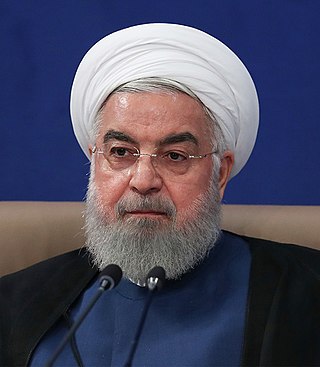
Iran,officially the Islamic Republic of Iran (IRI),also known as Persia,is a country in West Asia. It borders Turkey to the northwest and Iraq to the west,Azerbaijan,Armenia,the Caspian Sea,and Turkmenistan to the north,Afghanistan to the east,Pakistan to the southeast,the Gulf of Oman and the Persian Gulf to the south. With a mostly Persian-ethnic population of almost 90 million in an area of 1,648,195 km2 (636,372 sq mi),Iran ranks 17th globally in both geographic size and population. It is the sixth-largest country entirely in Asia and one of the world's most mountainous countries. Officially an Islamic republic,Iran has a Muslim-majority population. The country is divided into five regions with 31 provinces. Tehran is the nation's capital,largest city and financial center.

The University of Tehran is the oldest and most prominent Iranian university located in Tehran,Iran. Based on its historical,socio-cultural,and political pedigree,as well as its research and teaching profile,UT has been nicknamed "The Mother University [of Iran]". In international rankings,UT has been ranked as one of the best universities in the Middle East and is among the top universities of the world. It is also the premier knowledge producing institute among all OIC countries. Tehran University of Medical Sciences is in the 7th ranking of the Islamic World University Ranking in 2021. The university offers more than 111 bachelor's degree programs,177 master's degree programs,and 156 PhD. programs. Many of the departments were absorbed into the University of Tehran from the Dar al-Funun established in 1851 and the Tehran School of Political Sciences established in 1899.

Central European University is a private research university with a campus in Vienna and a non-degree,research and civic engagement presence in Budapest. The university offers intensive graduate and undergraduate programs in the social sciences and humanities,and is known for its low student-faculty ratio,and a highly diverse international student body. Admissions are classified as highly selective with an acceptance rate of 13%. All CEU programs and courses are accredited in Austria and the United States.

The Johannes Gutenberg University Mainz is a public research university in Mainz,Rhineland Palatinate,Germany. It is named after the printer Johannes Gutenberg since 1946. As of 2018,it had approximately 32,000 students enrolled in around 100 academic programs. The university is organized into 11 faculties.

The Ministry of Foreign Affairs is an Iranian government ministry headed by the Minister of Foreign Affairs,who is a member of cabinet. The office is currently held by Ali Bagheri after the death of Hossein Amir-Abdollahian.

The University of Tabriz is a public university located in Tabriz,East Azerbaijan,with the fundamental aim of creating a center of excellence in higher education and research. It is one of the top five high-ranked universities in Iran and one of the ten most selective universities in the country. The University of Tabriz is the second-oldest university in Iran after the University of Tehran,and has the second largest campus area in the country which is the biggest academic institution in northwest of the country. The university is also a member of the Caucasus University Association.

Education in Iran is centralized and divided into K-12 education plus higher education. Elementary and secondary education is supervised by the Ministry of Education and higher education is under the supervision of Ministry of Science,Research and Technology and Ministry of Health and Medical Education for medical sciences. As of 2016,around 86% of the Iranian adult population is literate. This rate increases to 97% among young adults ages between 15 and 24 without any gender consideration. By 2007,Iran had a student-to-workforce population ratio of 10.2%,standing among the countries with the highest ratio in the world.

Erasmus University Rotterdam is a public research university located in Rotterdam,Netherlands. The university is named after Desiderius Erasmus Roterodamus,a 15th-century Christian humanist and theologian.

Manouchehr Mottaki is an Iranian politician and diplomat who currently is a member of the Parliament of Iran representing Tehran,Rey,Shemiranat,Eslamshahr and Pardis since 2024. He was the Iranian Minister of Foreign Affairs from 2005 to 2010.

Tehran University of Medical Sciences (TUMS) is the largest and most highly ranked medical university of Iran. In September 2008,Iran's Minister of Health,Treatment,and Medical Education,Lankarani,called TUMS a pioneer in research throughout the country with a noticeable lead over its peers.

Tharman Shanmugaratnam,also known mononymously as Tharman,is a Singaporean politician and economist who has been serving as the ninth president of Singapore since 2023.

Mohammad Javad Zarif is an Iranian career diplomat and academic. Zarif briefly served as the Vice President of Iran for Strategic Affairs from 1 August 2024 to 11 August 2024. He was the foreign minister of Iran from 2013 until 2021 in the government of Hassan Rouhani.

The Imam Sadiq University is an Islamic private university in Tehran,Iran. Established in 1982,the goal of the university is to bridge the gap between Islamic research and modern studies,especially humanities. The university was dedicated to training politicians and jurists preaching Islam. Reflecting its commitment to Islamic principles,the university separates educational environments for female and male students.

Mostafa Pour-Mohammadi is an Iranian politician and prosecutor,who has served at different positions and cabinet posts. He was Minister of Interior from 2005 to 2008 and Minister of Justice from 2013 until 2017. Pourmohammadi is reportedly implicated in the 1988 execution of MEK prisoners.

The University of South Africa (UNISA) is the largest university system in South Africa by enrollment. It attracts a third of all higher education students in South Africa. Through various colleges and affiliates,UNISA has over 400,000 students,including international students from 130 countries worldwide,making it one of the world's mega universities and the only such university in Africa.

Kuwait is an emirate with an autocratic political system. The Emir of Kuwait,a hereditary monarch from the Al Sabah ruling family appoints the prime minister and other members of government,as well as members of judicial,police and financial institutions.

The University of Haifa is a public research university located on Mount Carmel in Haifa,Israel. Founded in 1963,the University of Haifa received full academic accreditation in 1972,becoming Israel's sixth academic institution and the fourth university. The university has the largest university library in Israel. As of 2019,approximately 18,000 students were enrolled at the University of Haifa. Among Israeli higher education institutions the University of Haifa has the largest percentage (41%) of Arab-Israeli students.

Hassan Rouhani is an Iranian politician who served as the seventh president of Iran from 2013 to 2021. He is also a sharia lawyer ("Wakil"),academic,former diplomat and Islamic cleric. He served as a member of Iran's Assembly of Experts from 1999 to 2024. He was a member of the Expediency Council from 1991 to 2013,and also was a member of the Supreme National Security Council from 1989 to 2021. Rouhani was deputy speaker of the fourth and fifth terms of the Parliament of Iran (Majlis) and Secretary of the Supreme National Security Council from 1989 to 2005. In the latter capacity,he was the country's top negotiator with the EU three,UK,France,and Germany,on nuclear technology in Iran,and has also served as a Shia mujtahid,and economic trade negotiator.

SayyidEbrahim Raisolsadati,better known as Ebrahim Raisi,was an Iranian politician who served as the eighth president of Iran from 2021 until his death in a helicopter crash in 2024. He was a Muslim jurist and part of the Principlist group.





















